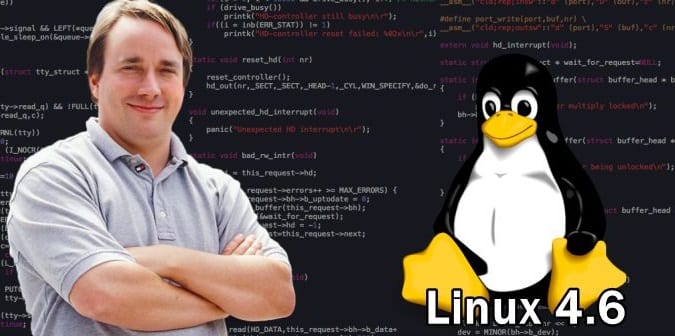Linux 4.6 comes to town, brings greater support for ARM based chips
Linus Torvalds has broken the news that Linux 4.6 has officially been released. He states his accomplishment in the announcement below:
“It’s just as well I didn’t cut the rc cycle short, since the last week ended up getting a few more fixes than expected, but nothing in there feels all that odd or out of line. So 4.6 is out there at the normal schedule, and that obviously also means that I’ll start doing merge window pull requests for 4.7 starting tomorrow.
Since rc7, there’s been small noise all over, with driver fixes being the bulk of it, but there is minor noise all over (perf tooling, networking, filesystems, documentation, some small arch fixes.)
The appended shortlog will give you a feel for what’s been going on during the last week. The 4.6 kernel on the whole was a fairly big release – more commits than we’ve had in a while. But it all felt fairly calm despite that.”
One of the biggest changes in Linux 4.6 is support for a more ARM based mobile chipsets, which no doubt includes the 14nm FinFET and might we add extremely powerful Qualcomm Snapdragon 820. Additionally, IBM’s POWER9 finds its first support, even though the chip is not going to arrive until late 2016.
Whatever processor you decide to run Linux will have a more complex conversation concerning varying its clock speed. Furthermore, OrangeFS, XFS, Btrfs and EXT 4 users can all look for tweaks that enhance performance of their preferred file systems, while F2FS is now said to be rather better at running on flash storage. Raspberry Pi users will also take note of this effort because 3D graphics performance will be given a much needed boost.
You can read all about the different forms of support that Linux 4.6 has added in its latest release report.

